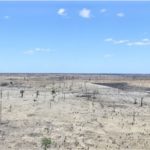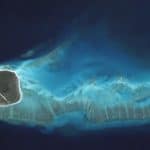The Pirate Republic of Libertalia in Madagascar
The Malagasy Republic of Libertalia, was a society founded by pirates that abolished all distinctions of race, religion and class.
It was short and had a dramatic ending but it had inspired many writers and presented a real challenge to historians.
Historical background
The First East India Company annexed Madagascar in 1642 and established its trading posts in the south and east of the island.

Even before their century and time, these men, whom only the sea sets free, plan to rewrite the laws of their society on land.
They free themselves from tyranny and slavery and secretly choose the glorious Diego Suárez Bay in northern Madagascar as the cradle of their utopian republic (conjecture, the exact location of the Republic of Libertalia is not historically documented).
Populated with beauties of mixed races, it will be ephemeral and intangible, the stronghold of a humanist republic founded on egalitarian principles.
Foundation of the Republic in 1685: Its name will be Libertalia.
It is the story of a pirate colony like no other in history existed, the traditional story did not take into account that brutal and described as bloodthirsty individuals, most of whom have abandoned their homeland and have a price on their heads, would try to create a more just society.
Because it is really the story of two pirate "philosophers" and the action takes place away from the so-called civilized societies, in Madagascar and more precisely in the Diego Suarez Bay, one of the largest and one of the most beautiful and best protected bays in the world and very isolated for the time.
The frigate "La Victoire
We are around 1680, Olivier MISSON, French gentleman, young aspiring man, from an old Provençal family, who had enjoyed an excellent upbringing and education, was in love with utopia and managed to leave on the frigate "La Victoire", which one of his uncles, Monsieur de Forbin, commanded.
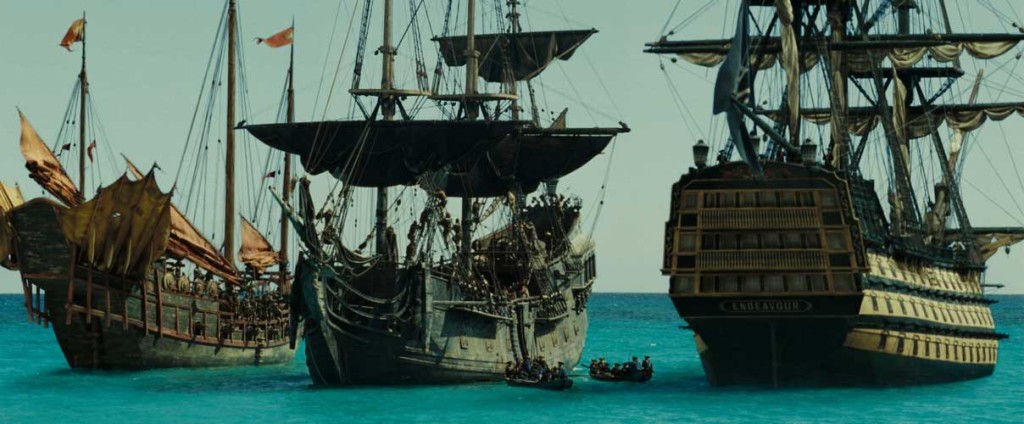
This monk, seduced by avant-garde ideas, was himself a theorist of the "Libertad". MISSON, thanks to his kinship with the commander, has him join the "Victoire" as the King's grenadier.
The adventure begins like all the stories of pirates who made the Indian Ocean their new hunting ground in the 17th and 18th centuries: on the other side of the planet, in the Atlantic Ocean.
More specifically, aboard La Victoire, a massive French warship used to escort merchant ships, sometimes in the Mediterranean, sometimes between Europe and the new continent.
Olivier Misson becomes captain of the frigate
The frigate "La victoire" was on route to the West Indies, the crossings were long and leisurely.
Misson and Caraccioli were friends spent time in intense conversation. Caraccioli's ideas were deeply influenced by libertarian deism, which denounced inequality, the essence of monarchy. Misson was enthusiastic and the ideas of his Italian friend corresponded to his adventurous spirit.
They began to preach their gospel to the occupation.
Within sight of Martinique, the "Victory" was attacked by an English ship, the "Winchelsea," and the battle was a terrible exchange of gunfire that caused damage to both ships.
At that time, only the senior officers had access to the dune. The two ships maneuvered parallel to each other, the English approached when the captain of the "Winchelsea" ordered the muskets of his gunners to fire and aim at the deck of the "Victory".
Captain Forbin, the second captain and the two lieutenants were killed by this squall.
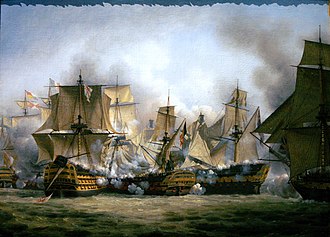
They did not want to return to Lorient, even if it meant becoming outlaws, and who would come for them?
They elected MISSON as captain, the only surviving and brave officer, and the monk CARACCIOLI as lieutenant.
Thus began an unusual adventure.
A DEO A LIBERTATE - OF GOD AND FREEDOM
And so, against the current, these two will try to grow the flowers of liberty, equality and fraternity, surrounded by people whose minds, we can imagine, have not been touched by such concerns.
It sc
Misson and Caraccioli, together with the crew, decide to change course: no more thankless tasks for an ungrateful king, they will now work alone.
The new pirates have a dream: to find an uninhabited place where they can establish a society free from the feudal, racial and religious burdens of their time.
They will set out for new waters where there is still land to be taken, where not every ship is that of a forban or warship.
They want to search for little known places, where there are peoples who still live as innocently as on the first day.
There we must seek our happiness, not in the seas rotten with all the lusts of Europe"!
On the other side of Africa!
Cape to the Indian Sea, it is huge and almost empty.
The frigate left the Caribbean for the Indian Ocean and more precisely for the Comoros and on the way in the Gulf of Guinea they captured two Dutch ships, including the "Nieuwstaak" loaded with black slaves which was seized.
This was an opportunity for Captain MISSON to apply his doctrine on slavery in a concrete way and to prohibit human trafficking.
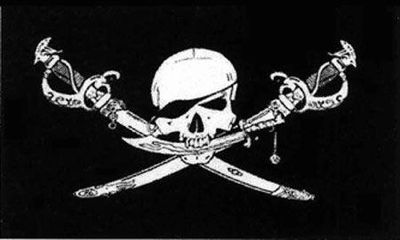
Near the Cape of Good Hope, they captured a brand new English ship with 32 guns, and in accordance with custom, the MISSON offered the crew to serve under her command.
CARACCIOLI distributed as well as possible these people, who came from different horizons, and took command of this ship, which had been named "BIJOU".
With these two ships, Captain MISSON anchored near Moheli Island in the Comoros, where they stayed for several months, many of them taking local women with them.
Later, the MISSON decided to set sail again towards Madagascar.
Along the coast of Mozambique, on the sea route to Madagascar, they captured a Portuguese ship.
The story of the First Pirate Republic begins in Madagascar.
Everyone is equal to everyone else, the Malagasy Republic of Libertalia, a society founded by prohibition that abolished all distinctions of race, religion and class, has inspired many writers and presented a real challenge to historians.

Over the centuries, the epic of the Republic of Libertalia has turned the heads of would-be pirates, anarchists, authors, government officials, and even historians.
The two ships arrived in Diego-Suarez around 1685 or 1690. (The archives have disappeared, and only through the accounts of surviving sailors could this story be assigned to the years 1685 to 1690).
There they drop anchor, the bay turns out to be an extraordinary natural harbor.
Captain MISSON and the crew of the "Victoire" and the "Bijou" explore the surroundings, the soil seems fertile to them, the air healthy, a river flows there, the forest is close.
They are excited, a perfect position for pirates and a magical place for a free colony.
Misson decides to settle down and opens it to his companions, all agree, and the 1st Republic "LIBERTALIA is erected.
Misson and Carassioli convinced the crew to create the ideal society.
This colony would have been much more than a simple asylum for pirates and privateers: It was a true political, social, and philosophical utopia, the modern equivalent of Atlantis or Eldorado, and the precursor of the French Revolution of the following century.
Its members, whose number increased with each conquest by gathering a large part of the crews, included Frenchmen, Englishmen, Dutchmen, Portuguese, freed former slaves, female passengers of the captured ships, women from the Comoros who followed the sailors.
His people will henceforth bear the name "Liberi", free men and women, and the Republic will be called "LIBERTALIA", the land of freedom.

All proud and equal, all united for the good of all, 10 nations in one.
Caraccioli realizes his dreams of a perfect world, without distinction of race, religion or class.
Decisions are collegial and democratic, with the men organizing themselves into groups of ten pirates, led by a representative who, along with the other elected officials, enacts the laws of the republic.
The north of the island of Madagascar was sparsely populated at that time, or so it was thought.
The Malagasy tribes were at war among themselves, yet contacts were made with the nearest Sakalava tribe, exchanges were made: cloth, axes, junk, etc.... for food : oxen, goats, rice, etc....
The free men organized themselves into groups of ten, and in each group they elected a representative to make rules and laws to govern "LIBERTALIA".
Numerous structures are built in the enclave, and after the construction of the Parliament House and an ecumenical church or temple, everyone helps to build their houses.
A harbor, dock, boat repair yard, and reconstruction of the aging "Victory" were built.
The treasure and the herds are distributed and everyone becomes the owner of the land he cultivates. The community becomes prosperous, the cleared fields are sown and oxen are bought from the Malagasy.
But most of them are primarily sailors, and many continue pirate activities with elected crews.
Europeans and blacks equally distributed (says the chronicler of the time) according to their abilities.
Because Misson decrees an absolute equality between all races, he symbolizes his anti-racism by mixing the different skin colors in the meetings, and according to exact dosages.
The city is developing and the warehouses were filled with gold and goods.
The captured crews could choose to join the Republic, they learned the language and of course applied the laws and regulations, the slaves were freed.
The community of "LIBERTALIA" is becoming richer and wealthier, but for a pirate the words "future" and "hope" have little meaning.
It was not a nest of vermin he had in mind, but a strange colony, both warlike and idealistic.
But even here leniency was applied to the prisoners, except for the traitors who were hanged.
After a few years, the harbor filled with ships, the new town, which had become a real city, grew larger and larger.
The colony was more prosperous than ever with about 1500 inhabitants.
There were births, and Captain Caraccioli was already seeing to it that libertarian alphabet books were printed for these children and their parents, almost all of whom were illiterate.
Education," he kept repeating, "is the basis of all progress. "
 The unexpected fall of Libertalia
The unexpected fall of Libertalia
The forest behind the town sounded with a thousand rushing sounds of a day in 1697.
With trained eyes and ears he would have noticed the flight of birds and the fear of cattle but no one expected the danger from the forest.
The guns were aimed at the bay and the entire fortification of Libertalia was facing the ocean and no one had expected the insidious attack of the Madagascans from the mainland.
And maybe it was just the wind that made the bushes tremble?
At the edge of the forest, the Malagasy were ready.
The nephew of the king of the Antakaras tribe, this great warrior who had known how to reunite the other tribes by keeping the promise of the wealth of the colony, and who knew from spies that he sent to trade with the liberals, that the ships had gone to sea and that the city had many fewer men.
Everyone was going about their business when suddenly the cannon thundered. It was not noon, it was the alarm.
The bay was empty, the screams came from elsewhere.
The Malagasy!!! ...how could they have approached without being seen?
All the heights were covered by locals. There were thousands of them, and today they did not come to negotiate.
They already took the city from behind, the inhabitants of Libertalia were surprised and overwhelmed.
Not one cannon was aimed at the hinterland, they already blamed themselves for protecting the entrance to the bay, forgetting about the threats from the land.
Who would have thought that stick bearers, almost naked savages, could pose a threat!
And here the locals attacked with such force that they seemed to be able to overturn everything.
The enemy was far more numerous than they, and his surprise effect had been cleverly calculated. By coming down everywhere at once, the Malagasy had disorganized the defenses that the Libertalia had abandoned at the edge of the forest.
It was the stampede, the refugees started running towards the ships... On board they would be safe.
The houses were on fire, the city was in flames. Two ships managed to set sail with some brave men led by the Misson and part of the treasure.
During the night the colony was completely destroyed and looted ...
Baie des Français (the bay of the French)
There is nothing left in Diego-Suarez Bay of what "LIBERTALIA" once was.
Nothing of the dream of Misson and Caraccioli is preserved, everything is reduced to nothing.

Caraccioli died during the attack in Libertalia, Misson later perishes in the middle of a storm in the Atlantic.
Tew went back to sea and piracy and was killed by a cannonball.
There were survivors of whom one cannot prove what they did afterwards, certainly some are the ancestors of the Zanamalata have become.
Madagascar remembered anyway, it is said that a tribe from the northeast coast, fearsome sailors, dangerous raiders, until the last century, owed their boldness at sea only to the descendants of pirates who took root.
The descendants of pirates in Madagascar
What has remained of this utopian dream?

Is that original fire still burning or have these utopians forged their faith in liberty, equality and fraternity?
That smoldering ember that sometimes flares up again when people start to believe that they can be brothers and that the world will follow them.
The buccaneers, who befriended Malagasy women, even left descendants-the Zana malata.
A living myth
The story of Misson and Caraccioli was written by Charles Johnson in Volume II of A General History of the Robberies and Murders of the Most Notorious Pyrates (General History of the Robberies and Murders of the Most Notorious Pyrates), which was published in London in 1724 and has been taken up, shaped, and even reinvented by many historians over several centuries.
Problem: Strong suspicions make Johnson a pseudonym for the novelist, adventurer and merchant Daniel Defoe, the author of the famous Robinson Crusoe, who took a malicious pleasure in passing off his dreams as reality and was close to the British radicals who advocated popular sovereignty before their time.
It was not until the early 20th century that Anglo-Saxon historians referred to the Libertalia episode as a "bait-and-switch," and a few decades later their French counterparts agreed.
However, among the amateurs of Flibuste or the fighters of left-liberalism who continue to believe in him, there are still a few die-hards.
Pierre van den Boogaerde, author of a beautiful book about the wrecks of Madagascar (Le Grand Livre des épaves de Madagascar, ed. Orphie, 2010), is one of them.
For him, there is no doubt that "Libertalia existed."


 The unexpected fall of Libertalia
The unexpected fall of Libertalia

